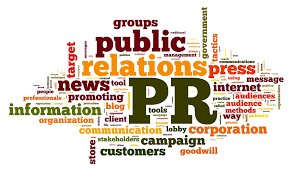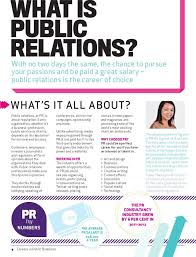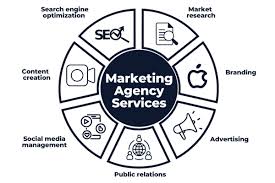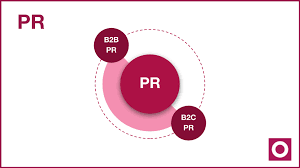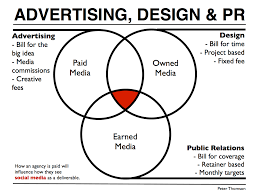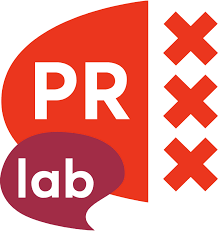Empowering Startups: The Essential Role of a PR Agency for New Businesses
PR Agency for Startups: Helping New Businesses Thrive
Startups face numerous challenges when it comes to establishing their brand and gaining visibility in a competitive market. This is where a dedicated PR agency can make a significant difference in helping startups thrive and succeed.
A PR agency specialised in working with startups understands the unique needs and constraints of new businesses. They have the expertise to craft compelling narratives that resonate with target audiences, generate media interest, and build brand credibility.
One of the key benefits of hiring a PR agency for startups is their ability to create tailored communication strategies that align with the business goals and objectives. Whether it’s launching a new product, announcing funding rounds, or managing crisis communication, a PR agency can provide valuable guidance and support every step of the way.
PR agencies also have established relationships with journalists, bloggers, influencers, and other key media contacts. This network can be leveraged to secure media coverage and exposure for startups, helping them reach a wider audience and build brand awareness.
Furthermore, PR agencies can help startups navigate social media platforms effectively, engage with their target audience, and manage their online reputation. By creating engaging content and monitoring online conversations, PR agencies can help startups build a strong online presence and connect with potential customers.
In conclusion, partnering with a PR agency can be instrumental in helping startups establish themselves in the market, attract investors, and differentiate themselves from competitors. With their expertise in strategic communication and media relations, PR agencies play a crucial role in shaping the success of new businesses.
9 Essential PR Tips for Startups: Building Relationships, Engaging Audiences, and Enhancing Visibility
- Focus on building relationships with relevant journalists and media outlets.
- Create compelling and newsworthy press releases to attract media attention.
- Utilise social media platforms to engage with your target audience and share company updates.
- Collaborate with influencers or industry experts to increase brand visibility.
- Monitor and analyse media coverage to understand the impact of your PR efforts.
- Attend industry events and conferences to network with potential partners and investors.
- Stay updated on industry trends and news to position your startup as a thought leader.
- Customise your PR strategies based on the specific needs and goals of your startup.
- Seek feedback from clients, partners, and stakeholders to continuously improve your PR campaigns.
Focus on building relationships with relevant journalists and media outlets.
Building relationships with relevant journalists and media outlets is crucial for the success of startups working with a PR agency. By establishing strong connections with key media professionals, startups can increase their chances of securing valuable media coverage and gaining visibility in their target market. These relationships enable startups to pitch their stories effectively, share their unique value proposition, and position themselves as industry experts. Through consistent engagement and personalised communication, startups can build trust and credibility with journalists and media outlets, paving the way for positive publicity and brand recognition.
Create compelling and newsworthy press releases to attract media attention.
Creating compelling and newsworthy press releases is a crucial tip for startups looking to attract media attention. By crafting press releases that tell a unique story, highlight key achievements, and provide valuable insights, startups can capture the interest of journalists and secure media coverage. A well-written press release not only enhances brand visibility but also positions the startup as an industry leader, generating buzz and credibility in the market. This strategic approach to communication can help startups build relationships with the media, reach a wider audience, and ultimately drive business growth.
Utilise social media platforms to engage with your target audience and share company updates.
Utilising social media platforms is a valuable tip for startups looking to enhance their visibility and connect with their target audience. By actively engaging with followers, sharing company updates, and creating compelling content, startups can build a strong online presence and foster meaningful relationships with potential customers. Social media provides a platform for startups to showcase their brand personality, communicate their values, and stay relevant in the eyes of their audience. Consistent and authentic engagement on social media can help startups establish credibility, drive brand awareness, and ultimately drive business growth.
Collaborate with influencers or industry experts to increase brand visibility.
Collaborating with influencers or industry experts can be a powerful strategy for startups looking to increase their brand visibility and reach a wider audience. By partnering with individuals who have a strong online presence and credibility in their respective fields, startups can leverage their influence to attract attention, build trust with potential customers, and ultimately enhance brand awareness. Influencers and industry experts can help startups tap into new markets, engage with target audiences authentically, and create valuable connections that drive business growth.
Monitor and analyse media coverage to understand the impact of your PR efforts.
Monitoring and analysing media coverage is a crucial tip for startups working with a PR agency. By tracking how their brand is portrayed in the media, startups can gain valuable insights into the effectiveness of their PR efforts. Understanding the impact of media coverage allows startups to identify what resonates with their target audience, adjust their messaging accordingly, and make informed decisions to enhance their brand reputation and visibility in the market. This proactive approach not only helps startups measure the success of their PR campaigns but also enables them to continuously improve and refine their communication strategies for greater impact and engagement.
Attend industry events and conferences to network with potential partners and investors.
Attending industry events and conferences is a valuable tip for startups looking to enhance their visibility and connect with potential partners and investors. These gatherings provide a platform for startups to showcase their products or services, engage with industry experts, and build meaningful relationships that can lead to collaboration opportunities or investment prospects. By actively participating in such events, startups can expand their network, gain valuable insights into market trends, and position themselves as key players in their sector.
Stay updated on industry trends and news to position your startup as a thought leader.
Staying updated on industry trends and news is crucial for positioning your startup as a thought leader in the competitive market. By being aware of the latest developments and insights within your industry, you can demonstrate expertise, credibility, and innovation to your target audience. Sharing valuable industry knowledge through thought leadership content such as articles, blogs, and social media posts can help establish your startup as a go-to source for information and insights, ultimately enhancing your brand reputation and attracting potential customers and investors.
Customise your PR strategies based on the specific needs and goals of your startup.
To maximise the effectiveness of your PR efforts as a startup, it is crucial to customise your strategies according to the unique needs and objectives of your business. By tailoring your PR approach to align with the specific goals and challenges of your startup, you can ensure that your communication efforts are targeted and impactful. Whether it’s building brand awareness, attracting investors, or launching a new product, customised PR strategies can help you achieve success by reaching the right audience with the right message at the right time.
Seek feedback from clients, partners, and stakeholders to continuously improve your PR campaigns.
Seeking feedback from clients, partners, and stakeholders is a valuable practice for startups looking to enhance their PR campaigns. By actively listening to the perspectives and insights of those involved in or impacted by the campaigns, startups can gain valuable feedback that can help them refine their strategies, messaging, and approaches. Continuous improvement based on feedback ensures that PR campaigns remain relevant, effective, and aligned with the goals and expectations of key stakeholders. This proactive approach not only fosters stronger relationships with clients and partners but also contributes to the overall success and growth of the startup in the competitive market landscape.




